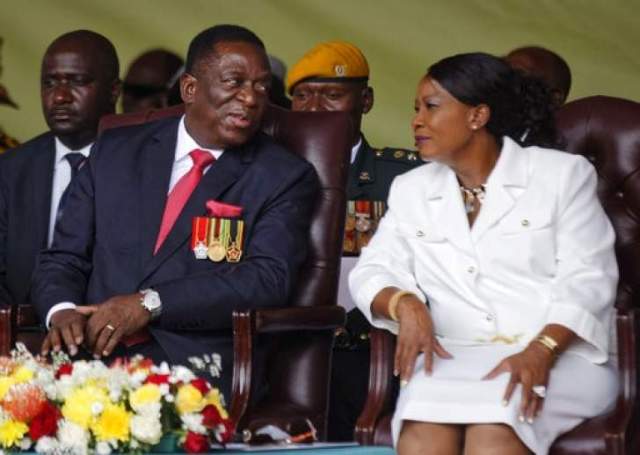 Emmerson Mnangagwa and his wife Auxilia take over the reigns in Zimbabwe. [Photo: Emmerson Mnangagwa's Facebook page]
Emmerson Mnangagwa and his wife Auxilia take over the reigns in Zimbabwe. [Photo: Emmerson Mnangagwa's Facebook page]
The recent military-led change of government in Zimbabwe that ousted Robert Mugabe, the country’s only head of state in the 37-years since independence in 1980, has ignited great hopes for the future. If these are not to be dashed, Zimbabwe will need massive support from its former colonial master, the United Kingdom, and from the Commonwealth from which it was suspended in 2002, over rigged elections.
The pessimists will point to the fact that very few military interventions to replace a civilian government, even when the ruler has become a despot, end happily. The new rulers more often than not prove to be at least as venal and oppressive as those they have replaced.
Zimbabwe’s new president, Emmerson Mnangagwa, who bears the nickname of “Crocodile” for his canny ruthlessness and who was Mugabe’s lifelong friend and ally, has a violent and controversial past. He was involved in overseeing the massacre, at Mugabe’s behest, of 20,000 people of the Ndebele tribe, as well as in the seizure, without compensation, of land owned by white commercial farmers.
The optimists, however, will point to the fact that before Mugabe brought the country to its ruination, Zimbabwe was second in the region only to South Africa in terms of economic and social development. It has a well-educated populace, a nominally strong constitution, and, seemingly, a commitment from the new government to restore democracy and end Zimbabwe’s international isolation. These good intentions will be tested in the general election to be held next year.
Electoral reform
Sternford Moyo, an internationally known human rights activist who has been at odds with the Mugabe regime for decades and who practices law in Harare, says that electoral reform is a critical and immediate need. A process of bio-metric registration of voters is already underway, supported by the United Nations, and “aimed at creating a credible and dependable voters roll”.
“If it is complemented by other electoral law reforms and the election itself is conducted under monitoring and observation by local civic society and the international community, it should be possible to have an election outcome that reflects the views of Zimbabweans,” says Moyo.
Within days of the “soft coup” British Prime Minister Theresa May promised that as Zimbabwe’s “oldest friend” Britain would work with its international and regional partners “to help the country achieve the brighter future it so deserves”. In similar vein, the United States has said it will discuss lifting sanctions on Zimbabwe if it began enacting political and economic reforms.
Beyond “fine words”
The international community needs to go beyond fine words.
Investment is desperately needed, but so too will be generous dollops of aid. A critical issue is to restore agriculture production in what was once known as the “breadbasket of Southern Africa” because of its ideal farming conditions, but which now cannot feed its people.
The international community could start by revisiting the good intentions of the Lancaster House Agreement, which in 1970 set the terms for creation of a sovereign Zimbabwean state. An important part of the agreement was that the British and American governments would compensate white citizens for any land sold for land reform purposes.
Despite good intentions, progress was slow and, by the mid-1990s, the willing-buyer, willing-seller principle was abandoned in favour of compulsory acquisition, but still with British funding support. The Labour government ended this in 1997, largely because much of the land being acquired was ending up in the hands of Mugabe’s political cronies.
The situation deteriorated rapidly and soon white farmers were being evicted forcibly, with the land and machinery confiscated without compensation. Several million black farm workers were excluded from the redistribution, leaving them homeless and penniless. Export crop production plummeted, as did food production.
Mnangagwa is known to have a keen interest in restoring the primacy of the agricultural production. Since becoming president he has announced that those whose land had benn seized will be compensated, a hugely symbolic act but also a very necessary legal redress if Zimbabwe is to be restored to constitutionalism.
Clearly Zimbabwe is going to need significant international financial support to achieve a successful turnaround under such challenging conditions. But here, too, symbolism is important. The restoration of Zimbabwe’s membership of the Commonwealth would be such an act.
William Saunderson-Meyer is a South Africa-based political commentator and journalist. He writes the syndicated weekly Jaundiced Eye newspaper column, which appears also on Politicsweb.co.za. Follow on Twitter @TheJaundicedEye.



